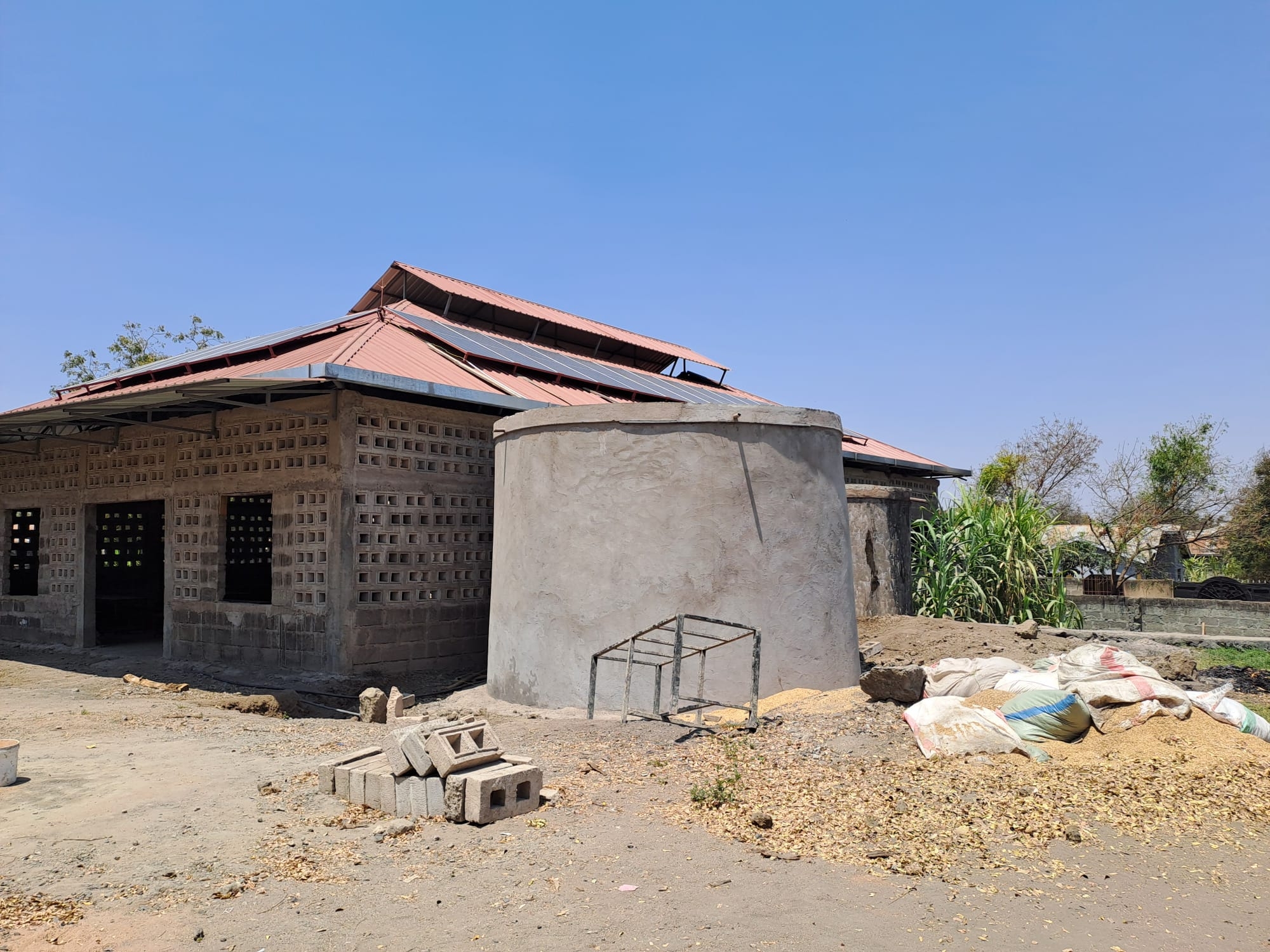
Rainwater harvesting at Trinity Academy
To improve the sustainable operation of Trinity Academy, a primary school in Boma Ng’ombe, Tanzania, we have installed gutters and water tanks on several buildings. The school has a total of seven large and several small buildings. As part of the project, three cisterns were built and gutters were installed on three buildings, namely the reception and administration area, a classroom building and the new dining hall. The tanks were designed as concrete cisterns to keep the water as cool as possible. The new cistern at the dining hall holds about 55,000 liters, the other two about 16,000 liters each. The complete construction work was carried out by local craftsmen and then reviewed as part of our project trip in September. Of course, there are still small things that should be improved in various places, but overall we are satisfied with the progress. A visit to our rain gutter installed last year at the Trinity Academy kindergarten showed us that we have to pay special attention to the fact that the rain gutters are cleaned regularly, as a lot of dust, leaves and also waste collect in the gutters during the long dry season and can block the drains. In addition, we have now had the rain gutters made of metal to enable a larger diameter than with the available plastic gutters, which tend to spill over during heavy rainfall. The water is mainly used for washing clothes and cleaning, but also to operate the new biogas plant and irrigate part of the school garden. In the long term, even more tanks are to be installed to collect rainwater from all buildings, as so far only about 1/8 of the maximum rainwater that can be collected is collected. In the next rainy season, we will have the daily rainfall measured by the students of class 4 as part of a school project and improve our calculations based on this. The use of rainwater complements the current use of the public drinking water network and a well whose water is extremely salty. In the long term, this salty water destroys the soil, so that damage caused by salt can already be seen on the plants in the school garden. With our project, we want to contribute to solving this problem. We would like to thank the entire team as well as all sponsors and supporters for their help!Text: Franzi Enzmann
